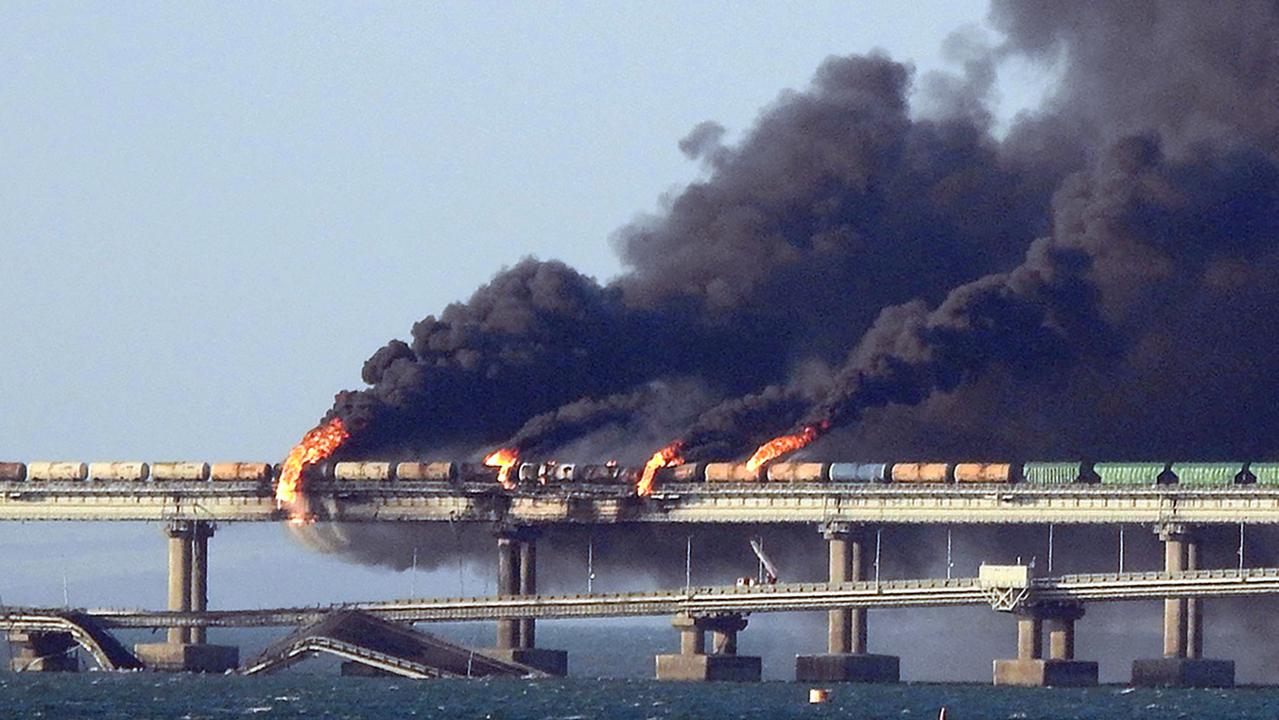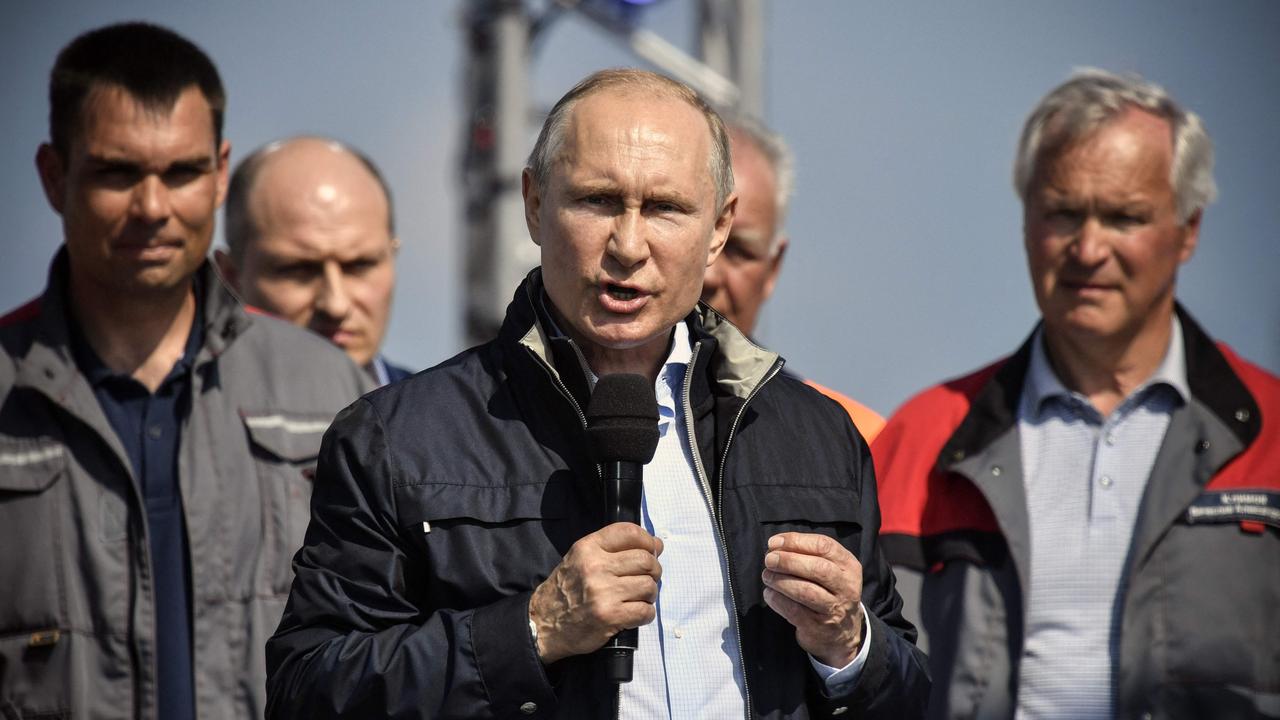Shock tactics may be key to Putin’s downfall
The battle of Cannae in 216BC, in which Hannibal’s Carthaginians annihilated a much larger Roman army, is one of the most celebrated battles in world history. It is a classic example of one side believing that a larger force would be bound to prevail, and the other using an unexpected manoeuvre - in this case a deliberate retreat followed by encirclement - to achieve a devastating victory.
This ingenious move was all the more effective because the Romans had two generals of equal rank commanding them on alternate days, leading to confusion, contradictions and then catastrophe.
For 2,000 years, Cannae has been a lesson to military tacticians in the importance of a unified command. Indeed, Rome ultimately defeated Carthage through the generalship of its own brilliant commander, Scipio Africanus. But if Vladimir Putin is aware of this enduring lesson from ancient times, he shows no sign of it. It is hard to think of any example in modern history of a leader more frequently reshuffling, rebalancing, demoting, reappointing, undermining and dividing their own generals than Putin since he invaded Ukraine.
In his excellent recent book Command, Lawrence Freedman describes how dictators seek to “coup-proof” their armies by denying authority to good generals: “Capable commanders start to appear as threats rather than assets.” And in its comprehensive account of the dozens of Russian leadership changes, the Institute for the Study of War notes that Putin’s usual method of rotating acolytes so they do not acquire too much influence, and demoting them without dismissing them so they seek a return to his favour, is “a style of leadership not well suited for leading a military engaged in a costly war”.
The confusion and rivalry this produces is perhaps the only way to explain the irrational behaviour of the Russians during the winter. Rather than taking the opportunity to build up a fresh, trained army after their huge losses and setbacks last year, they have poured raw recruits into trying to take Bakhmut, a town of little strategic value. According to western intelligence estimates, they have suffered 100,000 casualties. Now they can only await a counter-offensive by Ukrainian forces that have been trained and equipped in the meantime.
It is difficult to imagine that a powerful, single commander would have embarked on such a course. But Putin started the war with no such commander, then appointed one briefly, then shifted the leadership to a more ultra-nationalist faction before switching command to Valery Gerasimov, the chief of the general staff. The latter has then competed with the mercenary Wagner Group under the hardline warlord Yevgeny Prigozhin to show what they can do in Bakhmut while undermining each other.
The collective failure of these rivals has now produced open dissent. Last week, Prigozhin produced an extraordinary video laced with foul-mouthed abuse that could have referred to Gerasimov or to Putin himself, a “grandfather” figure who thought everything was going well while the Motherland was being betrayed. Meanwhile, Putin was presiding over a much-depleted VE Day parade in Moscow with a lacklustre speech, evidently torn not only between divided generals but also between his need to win the war on the one hand and reluctance to mobilise his wider population on the other.
While a new nationalist grouping, the Club of Angry Patriots, is preparing a manifesto on how to win the war, Putin appears increasingly trapped between such opinion and the unwillingness of most Russians to be conscripted. He is too indecisive to win the war, even if that were possible, and too exposed politically to end it, even if he wished to do so.
Such a combination points to a long war, with Putin neither able to prevail nor to agree any remotely realistic peace terms, irrespective of diplomatic efforts by China. But it also means that the Russians are now particularly vulnerable to a Ukrainian counter-offensive that takes a form they have not anticipated. By definition, of course, an army struggles most against an unexpected attack.
Like the Romans at Cannae, however, the Russians are particularly badly placed to respond to any ingenious moves: their senior command is divided and lacks authority, their field commanders are not empowered to respond flexibly to a new situation and their political leadership in Moscow hates to admit that anything is wrong. A counter-offensive of an unexpected timing, nature or location therefore has the potential to be both militarily and politically devastating to the Russian side, and is possibly the only, slim, hope of an end to the war in the foreseeable future through discrediting Putin’s own leadership.
In dramatic contrast to the chaotic Russian command, Ukraine has maintained a strong, unified military leadership under General Zaluzhny and the army commander General Syrsky. Alongside high Ukrainian morale and western technology, their effectiveness as generals has been decisive in the successful defence of Kyiv and reconquest of Kharkiv and Kherson.
They have proved how inventive they can be. Western governments should not push them into any offensive before they are ready but should arm them to perform feats for which the Russians have not planned. Britain’s latest gift of Storm Shadow missiles, able to hit targets further into occupied territory than hitherto possible, is exactly the right idea. That the US is not following this example is a serious mistake by the Biden administration.
To mount an effective attack on a better-resourced enemy is a tall order, which is why many analysts expect the Ukrainians to be limited to small gains of territory and a trend towards military stalemate. But the policy of Washington, or of the G7 when they meet this week, should not be based on those assumptions.
Politicians often underrate the importance of military leadership. It is not a commodity, but a rare talent. In this case, highly innovative and resourceful generals, with unity of command, have an unusual opportunity to strike an enemy who is institutionally unimaginative and is fragile and divided. They need all the support for which President Zelensky has been calling around Europe, to make the most of their chance.
The West does also need a broader political strategy in the still likely event of a much longer war. Are we doing everything we can to stop the supply of arms and other help to Moscow by countries such as South Africa, for example, or to tell the huge Russian diaspora around the world the truth about war crimes? To make peace possible in due course, we will need to prepare for the reconstruction of Ukrainian cities and to guarantee future resupply of arms and training.
The immediate opportunity, though, is military. Heedless of history, Putin presides over a divided and dysfunctional military command. The apparent master of control, whose power rests on knowing everything, has made himself very vulnerable indeed - to something he does not expect.



No comments:
Post a Comment